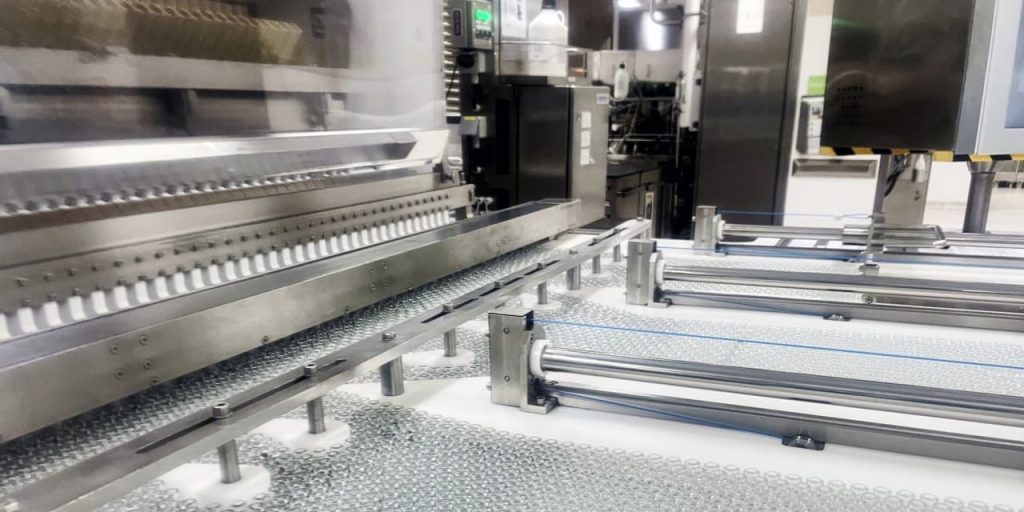GSK raised its outlook for the second time this year.
Ksenia Kuleshova/Bloomberg
British drugmaker
GSK
said Wednesday that sales of its new respiratory syncytial virus vaccine were £709 million ($859 million) in the third quarter of the year, significantly topping analysts’ expectations, and establishing a dominant position over rival
Pfizer
‘s competing shot.
Analysts at TD Cowen had expected third quarter sales of Arexvy, the RSV vaccine, of just £300 million ($364 million). On Tuesday, Pfizer (ticker: PFE) reported third-quarter sales of its RSV vaccine, Abrysvo, of $375 million.
The result amount to a strong start for a vaccine that the company expects to grow into a megablockbuster, and led GSK (GSK) to raise earnings guidance for the full fiscal year.
The company reported adjusted earnings of 50 pence per share for the quarter, beating the FactSet analyst consensus estimate of 46 pence. Sales were £8.1 billion for the quarter, better than the £7.7 billion consensus estimate.
GSK also raised its guidance, saying that it expects annual turnover, or revenue, to increase 12% to 13% year over year, compared with its earlier guidance for an increase of 8% to 10%.
The company expects adjusted earnings per share to grow 17% to 20%, up from its previous estimate for growth of 14% to 17%. The new guidance implies earnings of £1.66 per share at the midpoint, higher than the current FactSet consensus estimate of £1.50.
The earnings report seemed a rare bright spot in what has been a grim two weeks of pharma earnings, which has seen significant selloffs hit drug stocks following their financial reports. Casualties include Bristol Myers Squibb (BMY),
AbbVie
(ABBV), Sanofi (SNY), and
Amgen
(AMGN).
Despite the seemingly positive report from GSK, investors seemed to follow the same pattern Wednesday morning, and GSK’s American depositary receipts were down 2% premarket.
GSK’s ADRs have outperformed shares of many of its pharma peers so far this year. Putting aside
Eli Lilly
(LLY) and
Novo Nordisk
(NVO)—whose new anti-obesity medicines have driven dramatic spikes in their share prices—GSK is among the best performers of the group. GSK ADRs are up roughly 1% so far this year, while the S&P 500 Pharmaceuticals industry index has fallen 7%.
In a press release Monday morning, GSK CEO Emma Walmsley attributed the strong quarter to the performance of Arexvy. “Competitive performance was broadly based but benefited particularly from the outstanding U.S. launch of Arexvy, the world’s first RSV vaccine,” Walmsley said. “Our excellent execution supports an upgrade to our full-year 2023 guidance and we have clear momentum as we look ahead to deliver our 2026 outlooks.”
GSK is expecting Arexvy sales to taper off in the fourth quarter. The company expects full-year Arexvy sales of £900 million to £1 billion.
The company said that almost all sales of Arexvy were in the U.S. market, and that 1.4 million U.S. adults had received Arexvy so far this year.
In late October, GSK said it would seek expanded regulatory approval for Arexvy for adults aged 50 to 59, based on data from a new Phase 3 study. The shot is currently approved for adults aged 60 and above.
GSK ADRs trade at 9.3 times expected earnings over the next 12 months, below its five-year average of 12.7 times earnings.
Write to Josh Nathan-Kazis at [email protected]
Read the full article here
